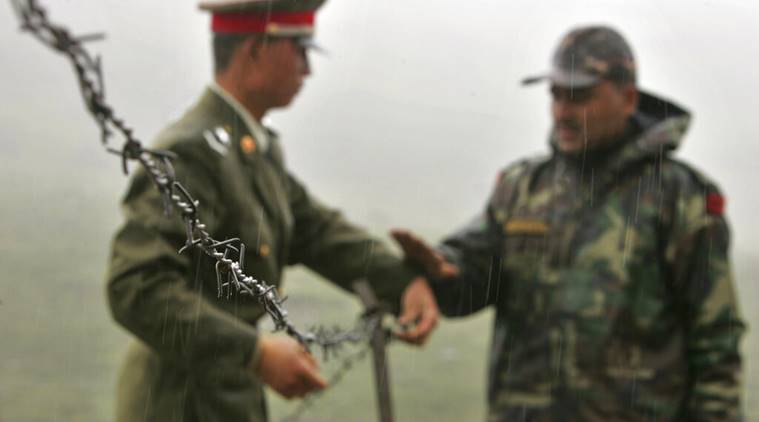 Recalling the June 15 incident in Galwan Valley “causing casualties” he said it was “a situation neither China nor India would like to see”. (AP/File)
Recalling the June 15 incident in Galwan Valley “causing casualties” he said it was “a situation neither China nor India would like to see”. (AP/File)
As the border working mechanism reviewed the situation on the ground in Ladakh and the “progress made” in disengagement of troops along the Line of Actual Control, Beijing’s envoy to New Delhi Friday said “the so-called ‘decoupling’ of China-India economic and trade relations” will “only harm others without benefit to oneself, and it will eventually hurt oneself as well”.
Ambassador Sun Weidong, in a statement released by the Chinese embassy on its website, said the two countries “should meet each other halfway” to “overcome” the “complex situation” in ties and “turn it around as soon as possible”. He said both should be “partners rather than opponents or adversaries”.
While calling for building “mutual trust” and “need to respect and accommodate mutual core interests and major concern”, he also said both must “adhere to the principle of non-interference in each other’s internal affairs”.
Maintaining that China is “neither a warlike state nor an assertive country”, Sun said “why should we fight against each other” when it “will only hurt those close to us and gladden the foes”.
Recalling the June 15 incident in Galwan Valley “causing casualties” – 20 Indian Army personnel and an unspecified number of Chinese troops were killed in clashes – he said it was “a situation neither China nor India would like to see”.
“The right and wrong of what recently happened at the Galwan Valley is very clear. China will firmly safeguard its sovereignty and territorial integrity, and ensure the peace and tranquility in the border areas,” he said.
In his statement, Sun cautioned against the “unfair” boycott of Chinese products by India. “China has been India’s largest trading partner for many years in a row, with cumulative investment in India exceeding $8 billion US dollars. China-India economic and trade cooperation has not only boosted the industries such as mobile phones, household appliances, infrastructure and automobile making in India, but also created a large number of local jobs,” he said.
“Some people have been trumpeting the so-called ‘decoupling’ of China-India economic and trade relations, with an attempt to completely exclude ‘Made in China’. One basic fact they ignore is that the current global industrial and supply chains are formed in a process of natural selection by market optimization over the past decades. The business community and people of India are the beneficiaries of China-India economic and trade cooperation.”
“Any self-protection, non-tariff barriers and restrictive measures against China are unfair to Chinese enterprises, unfair to Indian employees who lost their jobs as a result, and unfair to Indian consumers who cannot get access to the products and services they deserve. It will only harm others without benefit to oneself, and it will eventually hurt oneself as well,” he said.
Underlining that “China-India relations have gone far beyond the bilateral scope and have global strategic significance”, Sun used a Chinese saying “we have no fear of the clouds that may block our sights as we are already at the top of the height” to make the point that both countries must “bring bilateral relations back on the right track”.
On efforts to lower LAC tensions, he said “the two Special Representatives… agreed to follow the important consensus reached by leaders of the two countries. Both believed that maintaining peace and tranquility in the border areas matters significantly to the long-term development of bilateral relationship, that the boundary question should be placed properly in the bilateral relations, and that an escalation from differences to disputes should be avoided”.
The Ambassador’s statement came on the day officials of the Working Mechanism for Consultation & Coordination on India-China Border Affairs (WMCC) met for the second time in less than a month — the last meeting was on June 24.
The Ministry of External Affairs said: “They agreed that it was necessary for both sides to sincerely implement the understandings reached between Senior Commanders… As agreed by the two SRs, the Senior Commanders will meet soon to discuss further steps so as to ensure complete disengagement and de-escalation in a timely manner.”